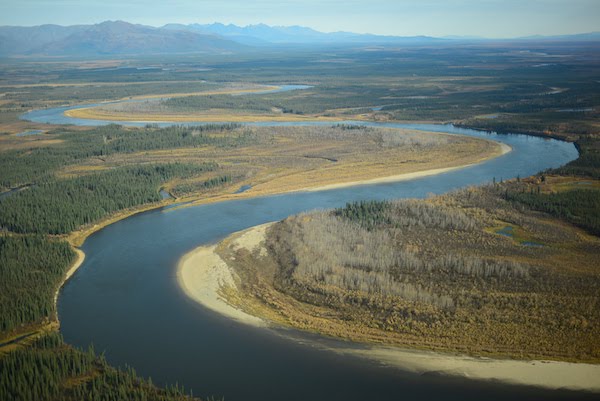The U.S. Interior Department on Friday essentially rejected the Alaska Industrial Development and Export Authority’s proposal to build the Ambler Road, a 211-mile industrial road that would have cut through Gates of the Arctic National Park and Preserve to access copper and zinc deposits in Northwest Alaska.
The Interior’s Bureau of Land Management chose a “no action” option in its environmental analysis, effectively ensuring AIDEA would not receive a right-of-way to build the road across federal lands. The Biden administration said the road, also known as the Ambler Access Project, would cause irreparable damage to wildlife including caribou, which many local people rely on for food.
The administration also announced stronger protections for 13 million acres inside the National Petroleum Reserve-Alaska, a vast swath of oil-rich — but environmentally sensitive — federal land in the Arctic.
Both of Alaska’s U.S. senators, Republicans Dan Sullivan and Lisa Murkowski, expressed outrage even before the decisions were formally announced. They said the decisions hamper the state’s economy and domestic resource development.
“It’s more than a one-two punch to Alaska. When you take off access to our resources, when you say you cannot drill, you cannot produce, you cannot explore,” said Murkowski in a press conference on Thursday. “This is the energy insecurity that we’re talking about.”
Voice of the Arctic Iñupiat, a pro-development advocacy group comprised of Indigenous leaders and funded in part by the Arctic Slope Regional Corporation and North Slope Borough, called the NPR-A decision “insulting.”
“We deserve the same right to economic prosperity and essential services as the rest of this country and are being denied the opportunity to take care of our residents and community with this decision,” North Slope Borough Mayor Josiah Patkotak said in a statement.
But other Indigenous people applauded the decisions, as did environmental groups.
“That caribou were heard over cash is a really big deal,” said China Kantner, an activist from an anti-road group called Protect the Kobuk.
Evansville Chief Frank Thompson said his tribe has been fighting the Ambler Road proposal for a decade. He thanked the Bureau of Land Management and the Interior Department for listening to them and protecting traditional hunting and fishing.
“Today is a great day,” he said. “Our future looks bright without the threat of 168 trucks driving by per day. Without increased pressures on our subsistence resources.”






